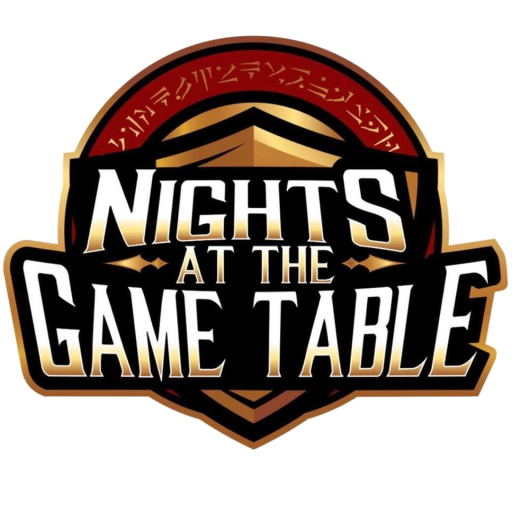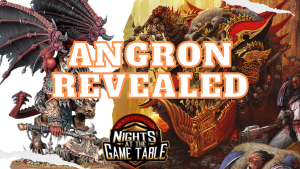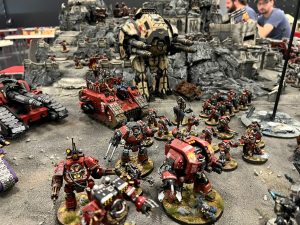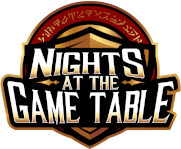Today we’re going to change gears just a little bit from our usual subject matter. Warhammer Tactics is an article series dedicated to helping regular players become better at the game. So, today we’re going to dive into preparing for a tournament, specifically the ITC style events, that way you can go out and play your games with confidence, even if you’ve never gone to a tournament before! We’ll cover everything you need to know about ITC events, tips for preparation and more! Without further ado, let’s dive in!
Tournaments for Warhammer 40K can range greatly in size, from a group of 8 or so people at your local friendly game store (often called a Rogue Trader Tournament, or RTT for short) up to hundreds at big name events like the Bay Area Open (BAO), the Las Vegas Open (LVO), or Adepticon. Every tournament will have its own rules for how its games will be played. Some events use their own missions that are designed just for that event, like Adepticon. However, many tournaments, big and small, will use the Independent Tournament Circuit rules, or ITC for short.
ITC is a very common format used for competitions due to their ease of play, and for the fact the missions create a very even playing field for most armies, making the game almost strictly a test of skill, as any tournament should be. There are six ITC missions, but they differ greatly from regular missions. Right out the gate, all ITC missions always go to 6 turns. Never 5, and never 7. This removes one of the most random parts about many 40k games, which is the length. You’ll never win or lose a game because it ended when you didn’t think it would.
In addition, most of the ITC missions use standardized, symmetrical objective placement. Each mission has its own rules for objectives and how they are placed, but the missions are designed so that there is no preferable table edge based on the objectives. The missions where players place their own objectives only have 2-3 objectives, so there isn’t much to worry about there either.
The biggest difference however, is how ITC events are scored. Normal games of 40k are scored at the end of the game usually, unless you’re playing Maelstrom in which case your method of scoring points is completely random. In ITC missions, you receive 1 point every turn for killing a unit and for controlling an objective, along with a bonus point for controlling more objectives or killing more units. You also get to pick your secondaries, but we’ll handle that, along with some game theory relating to ITC scoring in general later. These changes make stolen games largely impossible, and remove even more of the random factor. You need to be actively engaged every single turn to stay in the game, or you will fall behind.
Now that you’ve got a decent handle on what the ITC missions look like, let’s delve into some general tournament advice that’s applicable to any and all events:
Make sure you get plenty of rest. This probably sounds like a no-brainer, but it’s a pretty common mistake, especially for events that start early. To play your best, you need to be rested. You might do okay for your first game or two, but by the end of the day the fatigue adds up, and if you’re tired going in you’re not going to be at the top of your game. This is doubly important for large events, because if you make it to the second day you’ll have another round of games to play against very skilled players, which makes fatigue an even greater enemy.

On a similar note, make sure you’re prepared. You should pack your army the night before, along with all of your codexes, dice, measuring tape, and any other game accessories that you use. Ideally, you should also have print outs for all FAQ’s for your army, and probably one for the rulebook as is well. This way you won’t have to spend time flipping through the internet to find a FAQ. It might only save a few minutes, but on timed matches, you never know if you’ll need a few extra minutes…
Practice, Practice, Practice! Know the list that you want to bring to the event, and practice with it! I would get at least a game in a week, if not twice a week, for a few weeks before the event. The more practice you get the better of course, but any practice is better than none. You should know exactly what your list can and can’t do, what’s in it, and who you plan on giving what relics and/or powers.
As a last tip, you should definitely hit those books. Study the rulebook, your codex, and your FAQ’s. The less you have to look up or think about in a game, the more you can think about your decisions in said game. Plus, as I said before, two minutes not spent looking up the stat line on a weapon is two more minutes you have to play the game, which could make a world of difference. And no, no amount of studying makes showing up without your codex or rulebook okay.
Before we wrap up, let’s take some time to look at what you can do to optimize your understanding of ITC scoring. To do that, we need to analyze exactly how ITC scoring works. Every ITC mission follows the same formula for scoring, conveniently. At the end of every round, you get a point for controlling an objective, and a point for killing a unit. That’s a possible 2 points a turn, for a total of 12 over a game.
Every round also has a bonus point for killing more units than your opponent, and controlling more objectives than your opponent. That’s another 2 points a turn, for a total of 12. That brings us up to 24 so far.
Every mission also has a unique bonus objective, which is always dedicated to controlling objectives in some way. This is worth 1 point a turn, for a total of 6, and a max of 30.
Finally, players get to select three secondaries based on their opponents list. Each secondary is worth 4, which is a combined total of 12 for the three secondaries and a final maximum game score of 42 points.

So, clearly there’s a ton of ways to score points! Let’s break it down though. Make sure to buckle up, because this is where we get advanced. For starters, the point for killing a unit and controlling an objective are pretty much mandatory to score for both players. If you fail to kill a unit or control an objective, you lose that point, and your opponent will almost certainly get the point for killing more or controlling more, which is a 2 point swing! That’s -1 from you for an easy point you should get, and +1 to your opponent for handing him the “kill more” or “control more”. As we’ll delve into in just a bit, that 2 point swing can be a total game breaker.
Let’s move on to secondaries. We’ve already established that both players should be scoring all 12 of the primary points, which leaves us 30 points to really fight over. Each secondary is worth 4 points, but in general you instantly score them as you achieve them. I won’t list all the secondaries here, because it’s not too important for this article. If you wish to see them, go check out this link, it connects to the google document with the ITC mission packet. What is important to understand about secondaries is that you and your opponent should be able to score all 12 of their secondary points. Any point not scored is a point that has to be won from the remaining points left. Because of that, your bare minimum goal every game is to get 24 points, 12 for primary, and 12 for secondaries. Falling short here quickly makes the game unwinnable for you, unless you’re doing the same to your opponent.
Subtracting the 24 bare minimum points leaves us with 18 remaining points from our maximum score of 42. And these last 18 points are special. The primaries and secondaries can be easily 100% scored by both players in an ITC game. The remaining 18 do not behave this way. At the end of every round, there is a point for killing more units, a point for controlling more objectives, and a mission specific bonus point. That gives us three a round, over six rounds for a total of 18. If you score one of these 18 points, here after referred to as “bonus points”, it is a point your opponent can no longer score, or vice versa. This is what we refer to as a “zero sum game”, which means that somebody winning any amount means their opponent has also lost by that amount. It is also possible for both players to miss these bonus points as the rounds go on, and in fact it’s likely that some will slip through the cracks.
It is totally possible to miss the points for primaries or secondaries, and making your opponent miss those points is a great way to make them lose a game. But getting even one or two of these bonus points can quickly close out a game. For example, if your opponent kills a unit and you kill two, and you both control one objective, you get 3 points and your opponent 2. First, the bonus point for controlling more objectives that round is forever lost, along with the mission specific bonus objective. Second, you are ahead by a point from your opponent from killing more units. Now your opponent has to score two more bonus points (or you need to fail at scoring a couple primary or secondary points) to take the lead.
This gets even more crippling when we look at the mission specific bonus points. There’s only 6 of them, since they’re only worth one a turn, but that’s highly misleading. All of the mission specific bonus objectives require you to control more objectives than your opponent, which automatically means you’re also getting the +1 for controlling more objectives as well, which is a 2 point leadin your favor. As if that wasn’t enough, you’ll usually end up controlling every objective if you score the mission specific bonus objective, either by logistics or the actual requirement of the bonus objective. That means your opponent doesn’t get a point for controlling an objective at all, which moves it up to a 3 point lead! Assuming you are keeping up on your secondaries and killing a unit, scoring this bonus point practically guarantees that you will win the round, or at least push the odds significantly in your favor. Overall, fighting and winning more bonus points than your opponent is the best way to win any ITC mission, as long as you aren’t sacrificing primary or secondary points.
Phew, that wraps it up! This article didn’t even cover how to optimize a list for an ITC event, or the game theory behind other major tournament styles. These topics would easily be articles in their own right. What it does hopefully do is answer many of your questions around ITC, or even tournament prep in general. If you’ve never been, give it a shot! Even if you don’t fancy yourself a tournament player, it’s a great way to get multiple games in on a single day, and it’s a fantastic way to get involved with the community.
Next week, we’ll be talking about the values of dice and the effects that re rolls have. Whether it’s re rolling all misses, re rolling ones, +’s or -‘s to your dice rolls, it’s going to be covered. Make sure you bring your calculator for this one!

Warhammer 40k Winning Lists June 11th Edition
With summer in full swing, we see a refreshing number of tournaments kick back up globally, ranging from 3 to 7 rounds



